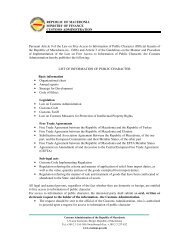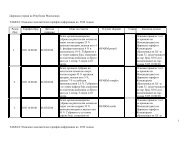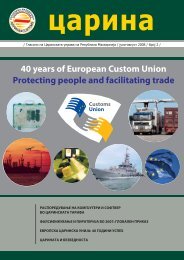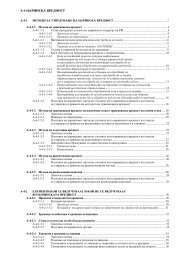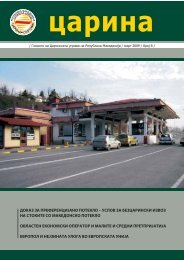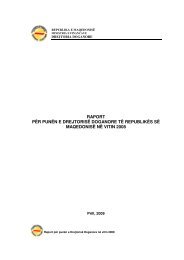REGIONAL COOPERATION AND ECONOMIC INTEGRATION
REGIONAL COOPERATION AND ECONOMIC INTEGRATION
REGIONAL COOPERATION AND ECONOMIC INTEGRATION
You also want an ePaper? Increase the reach of your titles
YUMPU automatically turns print PDFs into web optimized ePapers that Google loves.
PART IV:<br />
medium-sized enterprises, and regional development. Balkan transition economies in<br />
their efforts to adopt the European standards, enhance competitiveness, and become more<br />
attractive for foreign direct investments have encountered a lot of problems and challenges.<br />
Human resource development represents one of the most important one.<br />
1.<br />
The role of human capital in a knowledge-based economy<br />
In a knowledge society, competitiveness is to have the knowledge advantage. If a company<br />
wants to grow and develop, it has to answer on the challenges of the global market, faster<br />
and better comparing to its competitors. One of the key conditions for achievement of<br />
this goal is the existence of high competent employees. Human capital is actually on of<br />
the most important source of companies` competitiveness and it also influences economic<br />
development of a country and facilitate FDI.<br />
Here, it will be shortly discussed a few theories which are focused on the importance<br />
of human capital in facilitating FDI, explaining country’s development and international<br />
competitiveness. They are: Monopolistic advantage theory, Internalization theory,<br />
International technology gap theory and Porter’s competitive diamond. Proponents of<br />
Monopolistic advantage theory argued that investor firms typically possess monopolistic<br />
advantages that enable them to succeed over indigenous firms in their operations abroad.<br />
These monopolistic advantages stem from superior knowledge and/or oligopoly. Superior<br />
knowledge pertains to the investor company’s intangible assets, such as ‘technology,<br />
management and organization skills, marketing skills, and the like (Root, 2001, pp. 376).<br />
These intangible assets reside within the human talent in the firm. Thus, in order to gain a<br />
competitive advantage firms seek to acquire and retain such human talent. Internalization<br />
theory, also known as transaction-cost theory, asserts that firms seek to lower transaction<br />
costs by replacing external markets with internal flows (Casson, 1987; Root, 2001). In<br />
the context of new knowledge generation, ‘the most direct way to prevent disclosure and<br />
thereby earn monopoly rent is for the firm to internalize its knowledge. Instead of selling<br />
its knowledge to outsiders, the firm applies that knowledge only to production under its<br />
control (Root, 2001, pp. 378). The creation and transfer of new knowledge are made<br />
possible by and through human talent in the organization. Thus, in order to attain and<br />
maintain a firm’s competitive advantage and excel abroad, it is imperative that the company<br />
succeeds in attracting and retaining human talent. Internalization theory is also known as<br />
the product life-cycle theory of international trade (IPLC) (Vernon, 1966). It explains how<br />
imitator countries close the technology gap by acquiring and learning the technology of<br />
the innovator country, so much so that over time, the innovator country becomes the net<br />
importer of the product that they developed. In order to close the technological gap, the<br />
imitator country has to possess the human power that can acquire and absorb the advanced<br />
technology. Porter’s competitive diamond seeks to account for a country’s international<br />
competitiveness through an analysis of its factor conditions; demand conditions; related<br />
and supporting industries; firm strategy, structure and rivalry; government; and chance<br />
(Porter, 1990). The “factor conditions” refer to a country’s factors of production, labour (or<br />
more specifically, human capital) being one of them. By analyzing these four theories we<br />
can realize the all of them point to the pivotal role that highly trained and developed human<br />
resources – human capital or talent can play in affecting a country’s ability to expand<br />
abroad through FDI and/or gain international competitiveness.<br />
One of the most important studies in the field of human capital in the European Union is<br />
the study which was conducted by the Lisbon Council from the Brussels and Accenture<br />
230



